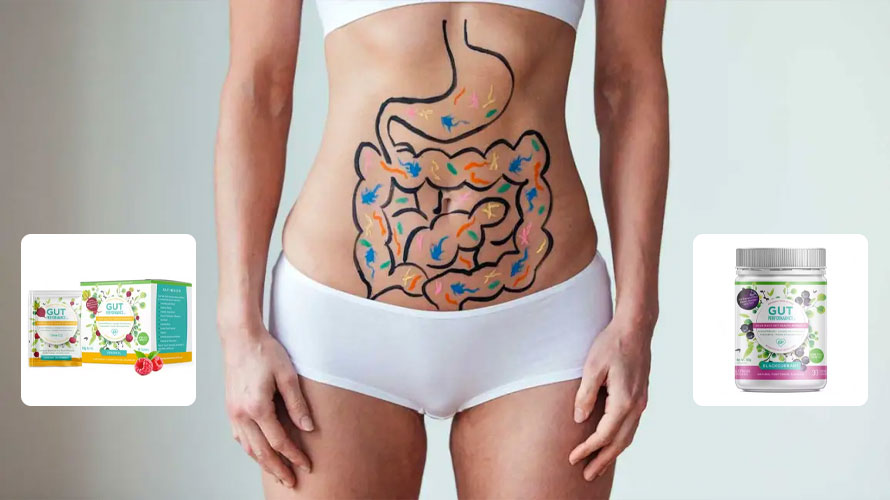Health & Beauty
Simple Ways to Improve Your Gut Health
We can define gut health as the balance of bacteria in every part of our gastrointestinal system and their function. This is the system that digests our food by breaking it down into a very simple form, and then it enters our bloodstream to deliver the healthy nutrients all over the body. The healthy bacteria that live inside it fight back viruses, fungi and other harmful bacteria. If you don’t take care of it, you may experience chronic fatigue and illnesses, inflammation, constipation, diarrhea, joint pain, etc.
How to Improve Your Gut Health
You should be able to recognize and feel when there’s something wrong with your gut. You will experience bloating, diarrhea, constipation, headaches, poor concentration, trouble sleeping and bad moods. But it’s important to react as soon as possible, and there are many ways you can get your health back on track.
Supplements
When your food intake is not enough, you can always add gut supplements to your dietary plan. They are a great way to boost your immune system and improve your health. They’ll ease digestive issues such as gas, abdominal pain, cramps and diarrhea. It’s also beneficial for gum health because it reduces the bacteria that can harm our gum. Because they strengthen the immune system, they also fight back dust mite allergies. It even helps with Crohn’s disease and IBS (irritable bowel syndrome).
When it comes to some changes in gut bacteria, problems may arise, but you can restore the balance with the help of effective digestive health supplements. There are four factors that can cause diarrhea:
- Foreign pathogens;
- Some antibiotics or medication;
- Bowel inflammation;
- Stress.

These supplements can undo the damage that these factors caused and ease the adverse side effects. They also maintain and improve gut integrity by protecting the gut barrier, a protective wall of cells. Digestive health supplements reduce gas and bloating. This may be caused by food intolerances, microbiome imbalance and yeast overgrowth. They can also improve your mood and reduce stress by repopulating gut bacteria.
Before taking some gut supplement, always consult with your doctor. This is because not every organism is the same, and we all react differently to probiotics. Every human has a specific combination of bacteria in their gut; even twins don’t have the same one. Always read the labels and keep them refrigerated. That way, they’ll be safe to use and work the best.
Balanced Diet
By eating a diverse range of foods, we supply our gut with different healthy bacteria and nutrients. Some of the best foods to consume are fruits, vegetables, beans and legumes. They’re all rich in fibre and good for your gut. Some bacteria will digest the fibre, and this will stimulate their growth. The foods you can eat include:
- Apples;
- Bananas;
- Lentils;
- Chickpeas;
- Beans;
- Broccoli;
- Raspberries;
- Artichokes.
Fermented foods are also great for your gut health because they’re rich in lactobacilli. They have undergone a process where yeast and bacteria break down the sugars. This will reduce the risk of inflammation and chronic conditions and decrease lactose intolerance. Some of the fermented foods are:
- Yogurt;
- Kefir;
- Kimchi;
- Tempeh;
- Kombucha;
- Sauerkraut.

Eating whole-grain foods filled with fibre and nondigestible carbs will also help because these carbs are absorbed in the large intestine instead of the small one. This way, they increase the growth of beneficial bacteria, promote fullness and reduce inflammation. Foods such as cocoa, dark chocolate, green tea, almonds, onions and blueberries are rich in polyphenols. Most polyphenols reach the colon and can lower blood pressure and cholesterol levels and reduce inflammation and oxidative stress. Mixing spices can also be helpful because ginger, garlic and turmeric will get rid of harmful bacteria in your gut. Also, avoid artificial sweeteners as much as you can. They’re known to disbalance insulin levels and have a negative effect on your microbiome.
Exercise
Your gut health can be another reason to start exercising today. Researchers found out that exercising for 6 weeks will greatly impact your gut microbiome. According to one study, exercise encourages the growth of bacteria that create butyrate, a fatty acid. Butyrate can help the gut lining heal and reduce inflammation. This way, they have the potential to prevent inflammatory bowel disease and resistance to insulin. Changes caused by exercise can also help to prevent obesity.
Some of the exercises that can help are yoga, stretching and weight lifting. Your bowels contract and move the waste through your system when you do these. This keeps our digestive system healthy and moving, which is important for our overall health. At least 30 minutes of exercise a day will change the way your bowels work but in a positive direction.

Lifestyle
Your lifestyle and daily habits can have a significant impact on your gut health. Stress is one of the top factors that can influence it. Environmental stress, psychological stress and sleep deprivation can be reduced with some meditation, breathing exercises and muscle relaxation. One research of 700 infants between 3-4 months showed that those who lived in a home where disinfectant cleaners were used had higher levels of Lachnospiraceae. This microbe can cause type 2 diabetes and a higher BMI (body mass index).
Smoking increases the harmful microorganisms and decreases the helpful ones. This can cause IBD and other dangerous intestinal diseases. Lower the alcohol intake as well. Too much of it can cause gastritis, heartburn, discomfort, bacterial infections and ulcers. Coffee and green tea also have polyphenols, just like almonds and dark chocolate, so having a cup of each is always a good idea. Stay away from chemically synthesized emulsifiers as much as you can. They have a terrible influence on your gut flora, and a significant amount can cause inflammation.












